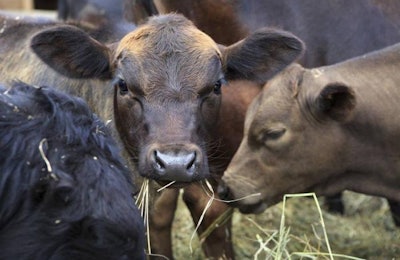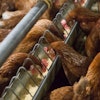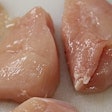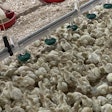
From WATTAgNet:
The European Food Safety Authority (EFSA) has found that contaminated animal feed is the most likely cause of isolated bovine spongiform encephalopathy (BSE) cases in Europe.
Because isolated cases of BSE continue to arise throughout Europe since the EU total feed ban came into effect on January 1, 2001, the European Commission has asked EFSA to investigate the origins of those cases.
EFSA’s findings show that cattle may have been exposed to contaminated feed because the BSE infectious agent was found where feed was stored or handled. Also, contaminated feed ingredients may have been imported from non-EU countries. Other causes of infection could not be ruled out.
In the late 1980s and early 1990s, BSE spread within the United Kingdom and then to other countries through the practice of using rendered bovine origin proteins as an ingredient in cattle feed. Since then, feed restrictions put in place by countries that may have imported infected cattle or contaminated feed ingredients have been highly effective in reducing the number of BSE cases worldwide, according to the U.S. Food and Drug Administration (FDA).
Contaminated feed the most likely source of isolated BSE cases
Between 2005 and 2015 about 73,000,000 cattle were tested for BSE in the EU, out of which 60 born after the ban tested positive for classical BSE. Scientists in the European Food Safety Authority (EFSA) has concluded that contaminated feed is the most likely source of infection for isolated BSE cases in Europe.
Read More at www.farmersjournal.ie
Bovine spongiform encephalopathy (BSE) cases born after the total feed ban
Scientific Opinion EFSA Panel on Biological Hazards (BIOHAZ), Antonia Ricci, Ana Allende, Declan Bolton, Marianne Chemaly, Robert Davies, Pablo Salvador Fernández Escámez, Rosina Gironés, Lieve Herman, Kostas Koutsoumanis, Roland Lindqvist, Birgit Nørrung, Lucy Robertson, Moez Sanaa, Marion Simmons, Panagiotis Skandamis, Emma Snary, Niko Speybroeck, Benno Ter Kuile, John Threlfall, Helene


















